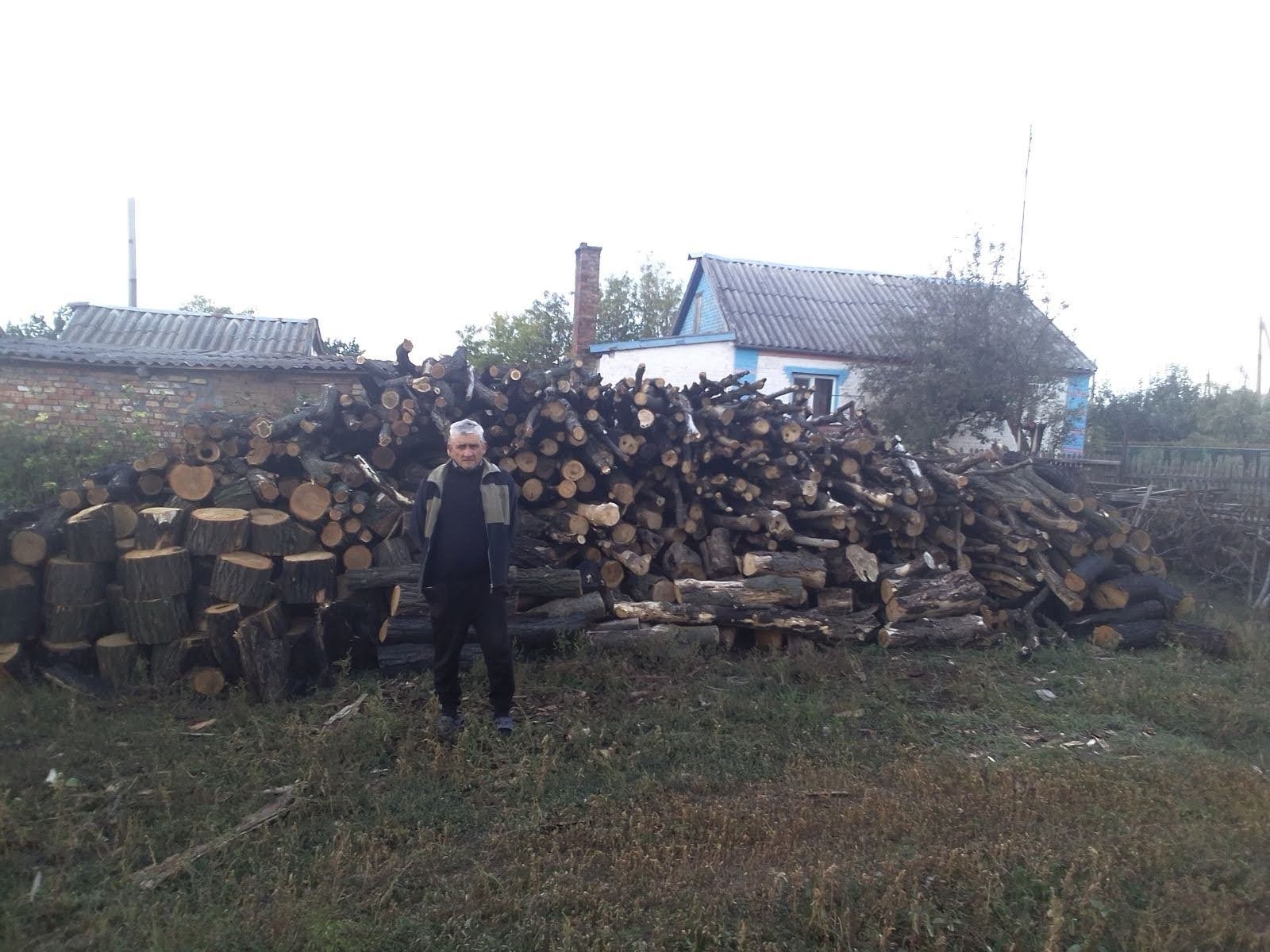With a dark winter looming in Ukraine, Jewish groups send generators and other support
Russian shelling has threatened Ukraine’s electrical grid, a pressing concern as cold weather sets in

An elderly Jewish man in the Dnipro region of Ukraine stands before a delivery of firewood made by JDC as part of an effort to support Ukrainian Jews in advance of a punishing winter. (Courtesy of the JDC)
(JTA) — Since Feb. 24, when Russian troops invaded Ukraine, Jewish groups from around the world have flooded the country with support, from food to medical care to evacuations.
Now, as temperatures fall and Russian attacks on Ukraine’s power grid ramp up, those groups are directing their efforts toward making sure that Ukrainian Jews can remain warm and safe in the coming months.
A Ukraine response group organized by the Orthodox Chabad-Lubavitch movement, whose rabbis are the Jewish leaders in many Ukrainian cities, is raising funds to buy hundreds of generators to equip each its sites and the homes of needy Jews with backup power. Since the war’s start, Chabad houses and synagogues have become places of refuge and distribution sites for aid.
“Everyone knows our address,” Rabbi Shaul Horowitz, who leads Chabad in Vinnytsia, told Chabad.org, the movement’s news site. “Now we need the generators.”
Meanwhile, Jewish Federations of North America on Thursday announced another $7 million infusion for the Ukraine effort, adding to the $78 million that the group and its member federations have donated already. The new funding will pay for both supplies to manage the dangerous winter ahead and to help Russian Jews move to Israel, as tens of thousands have already done this year. (Russian pressure on the group that facilitates emigration to Israel has complicated the efforts of those who are eligible for Israeli citizenship to leave.)
Through the JDC, a group that aids Jews in peril worldwide, the donation will go to buy blankets, clothing, portable heaters and stoves, shelf-stable foods and other emergency items that will go to roughly 22,000 Ukrainian Jews and the organizations that serve them.
“The winter forecast in Ukraine is extremely concerning, with the potential for an even graver humanitarian crisis, and our latest allocation reflects our attention to the evolving needs on the ground and our ongoing commitment to provide relief where it is most needed,” JFNA’s president and CEO, Eric Fingerhut, said in a statement.
The moves come as Ukraine’s electrical supply is under extreme pressure, with blackouts increasingly frequent because of Russian shelling that has targeted the civilian power infrastructure. The country has even crafted a plan to evacuate all the residents of Kyiv, in the event that the capital city, Ukraine’s biggest, loses all power. Even if it does not, much of Ukraine is planning for a winter when power, heat and hot water cannot be counted upon.
Already, cities are subject to intermittent power losses and restrictions on use. Chaya Wolff, who with her husband directs Chabad of Odessa, told Chabad.org that their city had just experienced a four-hour loss of power. The group plans to buy 49 commercial generators as well as hundreds of smaller generators meant for home use.
“No lights, no computers, no smart boards — we don’t have any street lamps in the city at night,” Wolff told the site. “We need four commercial generators urgently. And there are only two available for purchase locally, at tens of thousands of dollars each.”
The JDC has supported Ukrainian Jews during the bleak winter months for years. This year, the group says, it will be doubling its aid amid what CEO Ariel Zwang said was a “drastic uptick in needs.” With the support of not only Jewish federations but also the Claims Conference, which supports Holocaust survivors, the International Fellowship of Christians and Jews and its own individual donors, the group recently delivered firewood, coal, warm clothing and bedding to Jews, many of them elderly, living in the Dnipro region.
“As a new stage in the Ukraine crisis has begun, we have moved from a program of winter relief to winter survival,” Zwang said in a statement. “Our staff and volunteers have not stopped our life-saving services within Ukraine, along with those for refugees in Europe, and will continue to ensure that Jews and Jewish communities have the supplies they need to survive the coming months.”
This article originally appeared on JTA.org.
















